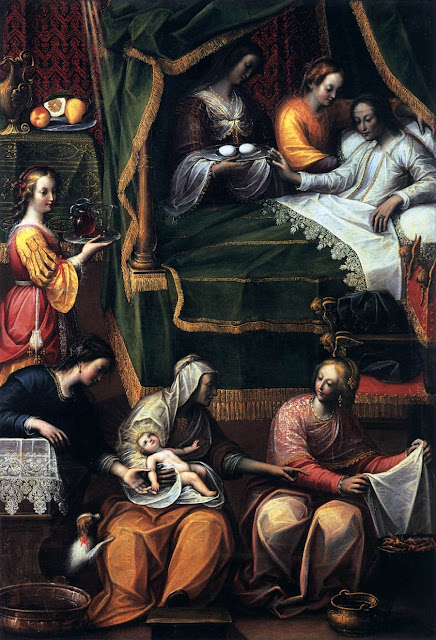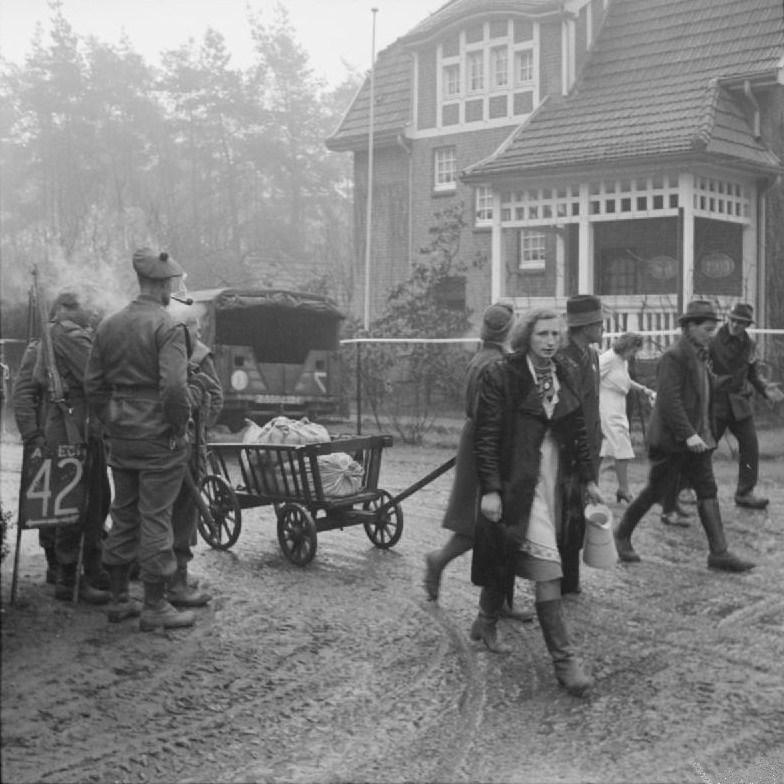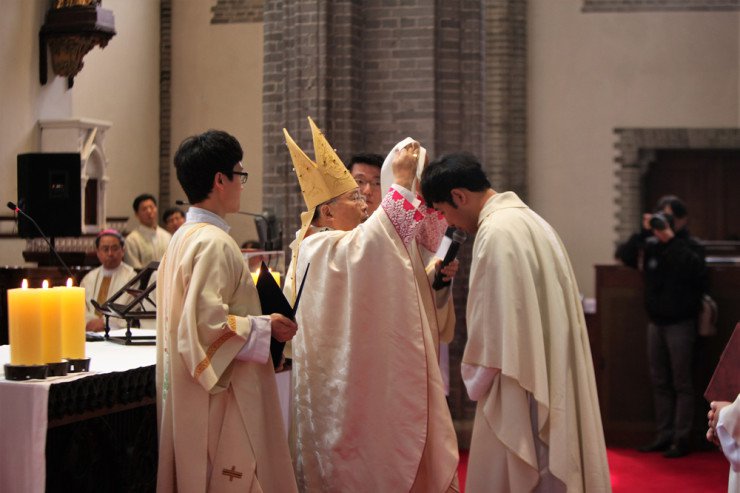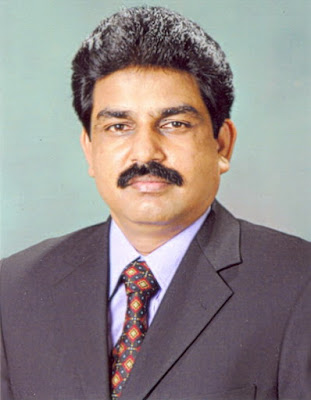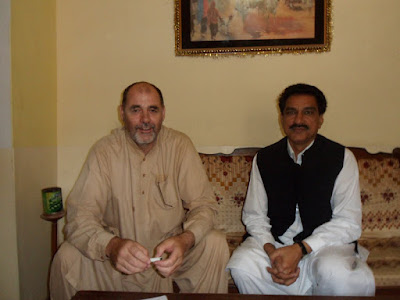
‘The greatest among you will be your servant.’ Sunday Reflections, 31st Sunday in Ordinary Time, Year A
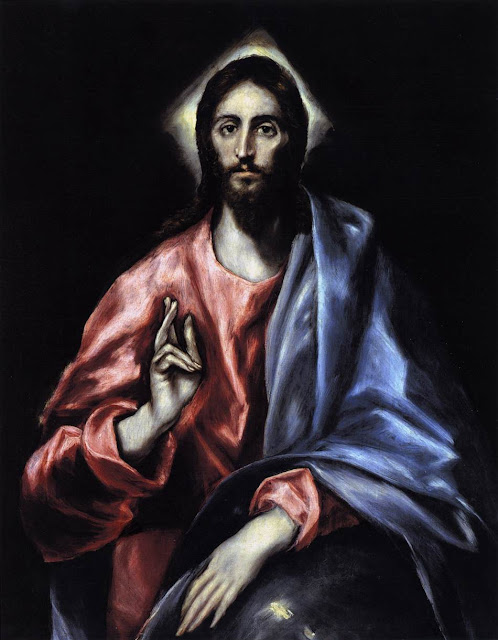
Christ as Saviour, El Greco [Web Gallery of Art]
Readings (New American Bible: Philippines, USA)
Readings (Jerusalem Bible: Australia, England & Wales, India [optional], Ireland, New Zealand, Pakistan, Scotland, South Africa)
Gospel Matthew 23:1-12 (New Revised Standard Version, Anglicised CatholicEdition)
Then Jesus said to the crowds and to his disciples, ‘The scribes and the Pharisees sit on Moses’ seat; therefore, do whatever they teach you and follow it; but do not do as they do, for they do not practise what they teach. They tie up heavy burdens, hard to bear, and lay them on the shoulders of others; but they themselves are unwilling to lift a finger to move them. They do all their deeds to be seen by others; for they make their phylacteries broad and their fringes long. They love to have the place of honour at banquets and the best seats in the synagogues, and to be greeted with respect in the market-places, and to have people call them rabbi. But you are not to be called rabbi, for you have one teacher, and you are all students. And call no one your father on earth, for you have one Father—the one in heaven. Nor are you to be called instructors, for you have one instructor, the Messiah. The greatest among you will be your servant. All who exalt themselves will be humbled, and all who humble themselves will be exalted.
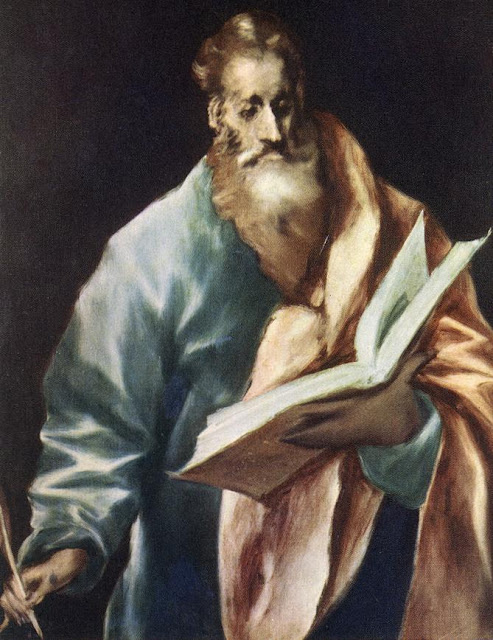
Apostle St Matthew, El Greco [Web Gallery of Art]
The Philippine Daily Inquirer carried a a story of extraordinary courage on 28 October: How Scout Ranger commander won hostages’ release.
MARAWI CITY—He took off his helmet and bullet-proof vest, laid down his firearm and turned on the megaphone to speak to the Islamic State-inspired gunmen here on Oct. 19.
“I just wanted to get the children, the women and the injured (hostages),” Capt. Jeffrey Buada said through the megaphone.
At the risk of being shot, Buada, commander of the Army’s 15th Scout Ranger Company, slowly walked through the rubble and tried to get near the building, where hungry and thirsty hostages were anxiously waiting to be rescued.
The Battle of Marawi started on 23 May and ended on 23 October. The fighting was basically between militants connected with ISIS and the Armed Forces of the Philippines. At the beginning the militants destroyed part of St Mary’s Cathedral in this city where the vast majority are Muslims. Fr Teresito ‘Chito’ Suganob, the parish priest, and a number of parishioners were taken hostage the day the battle began. Father Chito, whom I know, was released on 17 September.
As the battle intensified most of the residents of the city evacuated. There were stories of how Muslim students at Marawi State University protected their Christian friends and enabled them to escape and similar stories of Muslim members of the Philippine National Police protecting Christina construction workers.
On 19 October, while covering one of his men who was trying to rescue a wounded hostage, Captain Buada saw an opportunity to rescue some more and decided to negotiate with the militants. He removed all his battle gear and armour, against the advice of his men. The militants did not attack him and asked for food and water. The Captain ordered his men to bring them what they needed. The young officer, a father of two young daughters, drank some of the water to assure the enemy that it was safe.
As five hostages came out some of the soldiers removed their battle gear and armour, imitating their officer. They managed to rescue at least five hostages. But gunfire broke out again before they could rescue more. However, the soldiers and the rescued hostages were unharmed.
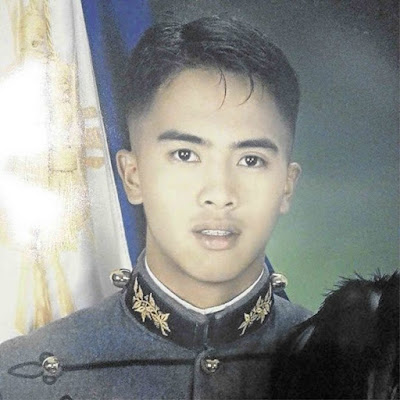
Captain Jeffrey Buada [PDI]
In today’s Gospel Jesus recognises the authority of scribes and Pharisees as teachers of the Law of Moses. But he also says, do not do as they do, for they do not practise what they teach. He tells us what to do: The greatest among you will be your servant. All who exalt themselves will be humbled, and all who humble themselves will be exalted.
Captain Buada was ‘the greatest’ – the highest ranking – among the soldiers in his unit. But he put his own life on the line first and some of the others did the same. But my thought was if I die, at least we got the hostages, the brave soldier said later.
This man was a servant in the truest sense, ready to die for his men and for the rescue of the hostages.
I know nothing about the inner life of Captain Jeffrey Buada but I see St Paul’s words in the second reading being lived out by him: We also constantly give thanks to God for this, that when you received the word of God that you heard from us, you accepted it not as a human word but as what it really is, God’s word, which is also at work in you believers.
God’s word was surely at work in him. May we constantly give thanks for this and for the many other examples we can see around us, often in the midst of horror and evil, of God’s word at work in believers.
Antiphona ad Introitum Entrance Antiphon
Ne derelinquas me, Domine Deus meus; ne discesseris a me.
Forsake me not, O Lord, my God; be not far from me!
Intende in adjutorium meum, Domine Deus salutis meæ.
Make haste and come to my help, O Lord, my strong salvation!





